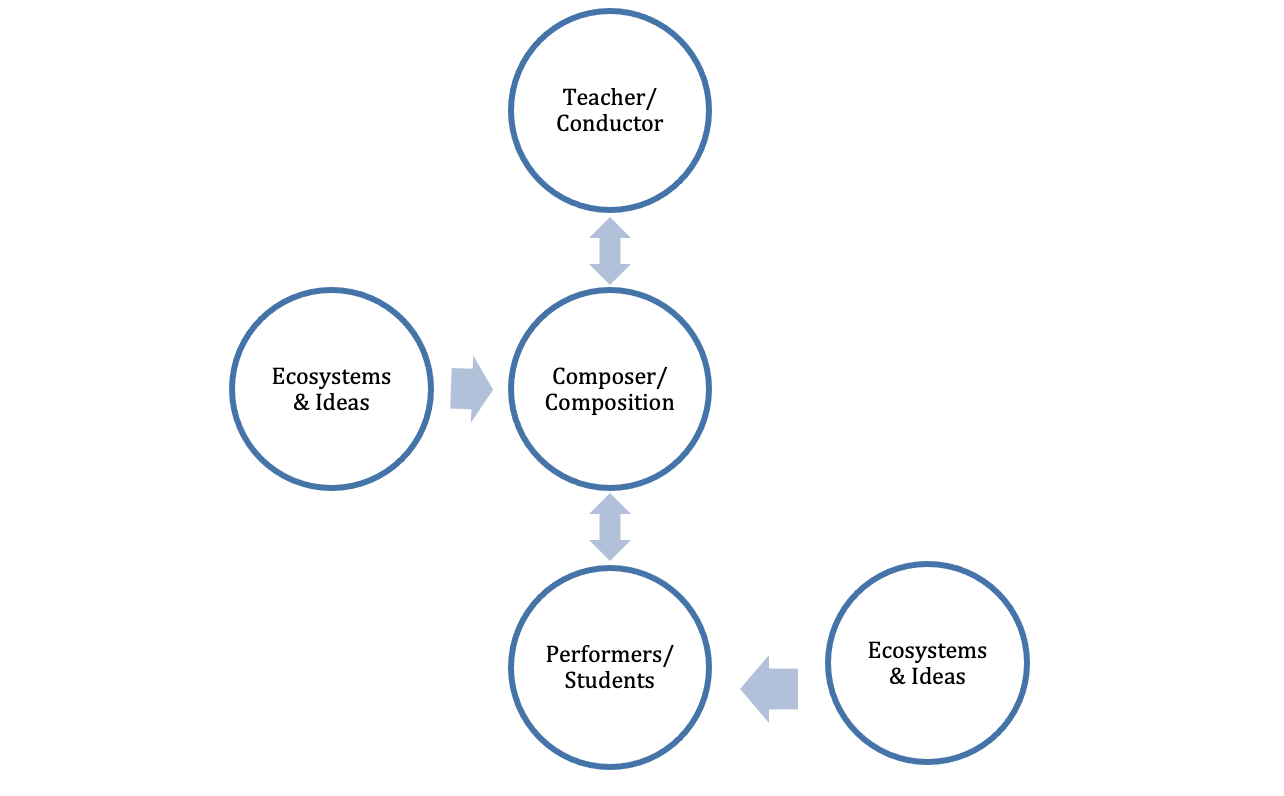
Reboot
Thinking About Band
This morning I'm thinking about school concert band (though the approach represented by these thoughts might be useful for school marching and jazz bands too). A primary way school bands can teach for eco-literacy may be by beginning with program notes. Dave Maslanka’s oeuvre can serve as a wonderful model for this approach. When we read Maslanka’s program notes, it quickly becomes apparent that merely playing the right notes is not enough in performing this music well. He writes with forceful ecological purpose, and that purpose should serve as a springboard for students performing his music in concert band. There are many composers whose music expresses various ecological ideas and politics. Beginning with a horizontal approach—from the composer’s intentions to teacher/conductor performers/students—can serve as a springboard for conversations that matter and that can broaden experience and understanding. But even when programming composers with less of an overt ecological barometer, ecological literacy can be approached by extending laterally, beginning with the programmed musics and making connections to ecological challenges students face in society every day.
Even after beginning horizontally, with ecologically minded composers, since the lateral approach is how those composers generated their insight, their inspiration for composing; guiding students as they think laterally may better to help them think like a creative musicians working within a society. In this model, the teacher/conductor plays an important role, guiding student learning through the composition, which represents the composers intentions, where ecosystems & ideas affected the composer. Additionally, the teacher/conductor guides the students as they come upon these ideas through the composition, as well as they bring in their own horizontal experiences with ecosystems and ecological ideas.
I borrow this idea of horizontal and lateral relationships from Bennett Reimer (2009, p. 12), even where I reject his idea that meaning lies ONLY in horizontal relationships. How could it only reside in this type of relationship? Rather, meaning lies in both sets of relationships, the horizontal and the lateral. Students don’t exist without their horizontal experiences, even those outside of school. Perhaps, especially those. To ignore these misses the most basic element of teaching: caring relationships. Additionally, if we want to emphasize horizontal relationships, and center them, which I do as a teacher, that doesn’t lessen the importance of horizontal relationships. As a result, music ensemble teachers have more duty than merely picking compositions they personally like, which they often label as having aesthetic quality (which cannot then be defined), though picking beautiful and moving pieces is a good idea; music ensemble teachers also have a duty to pick music that provides robust musical, social, and ecological value. By that, I mean musics that serve as a springboard for understanding. For learning. Am I asking too much of music pieces? Of composers? I don’t think so. I’ve already pointed toward Maslanka’s music as a model, and that’s for a reason. This music is aesthetically moving, as well as being socially and ecologically robust. Scheduling a Maslanka composition on a concert ought to be an opportunity for technical, artistic, and mental growth, as teachers and students wrestle simultaneously with wondrous and complex sounds and social and ecological meaning throughout the school year. Musicking of this sort deserves centrality to any educational system.
DS
 RSS Feed
RSS Feed
